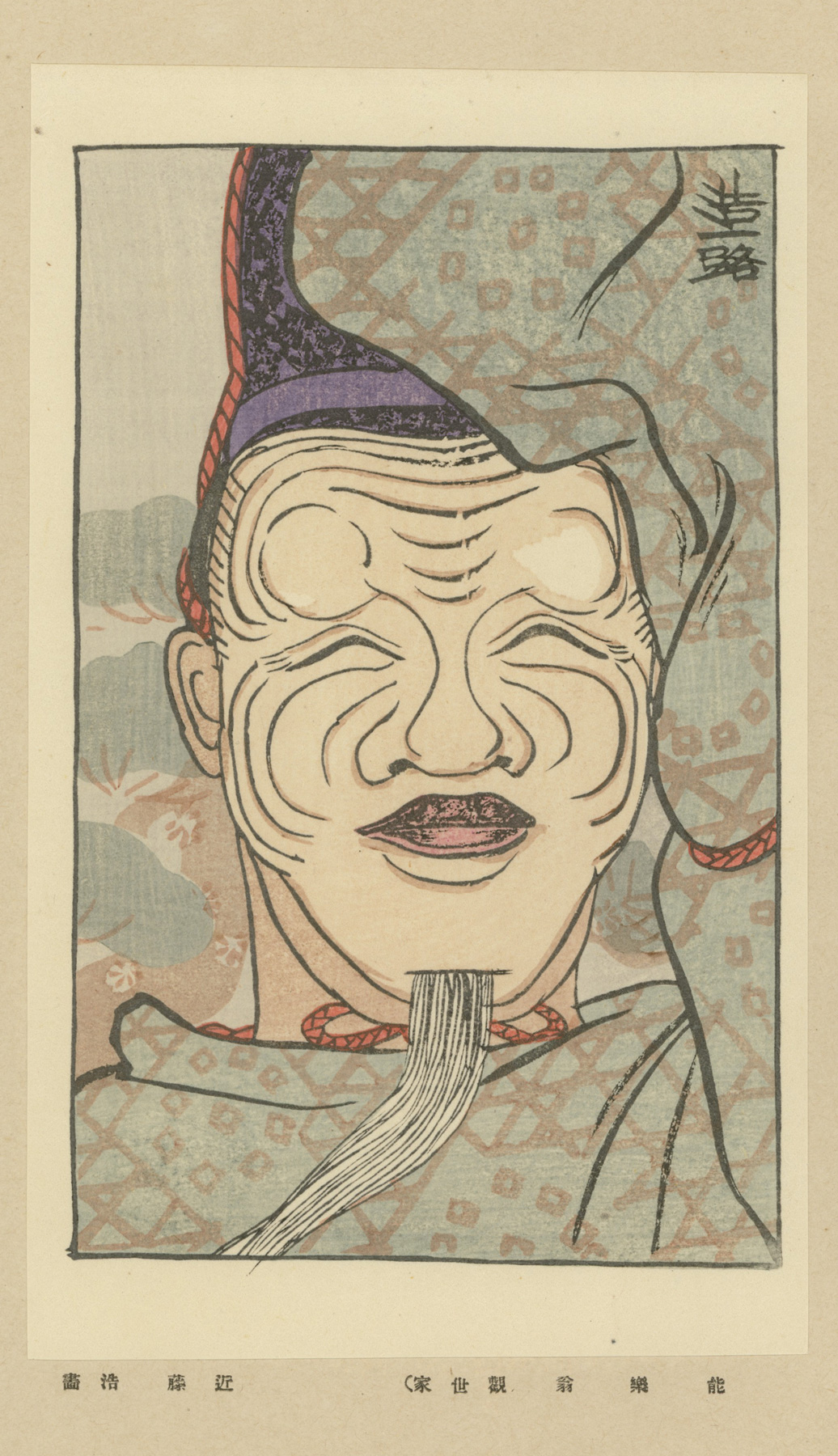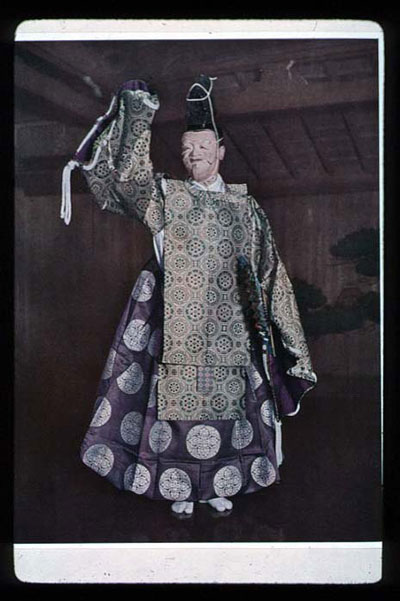About This Print
This print by Kondō Koichirō appeared in the last issue (#5), published in November 1915, of the magazine Shin Nigao. Although the primary purpose behind the magazine was to advertise the Kabuki theater and renew interest in actor prints, five prints in the last issue of the paper portrayed individuals or characters involved in the month-long celebrations of Emperor Yoshihito's (Emperor Taishō) enthronement in November 1915. This print is of an unnamed actor performing the Noh play Okina.
For more information on this short-lived magazine whose purpose was to advertise the Kabuki theater and renew interest in actor prints, see the article Shin Nigao Magazine.
[翁] Okina
Source: Noh, Daiji Maruoka and Tatsuo Yoshikoshi, 1969, Hoikusha Publishing Co. Ltd., p.2.An ancient religious ceremony, originally perfomed by priests and latertaken over by Noh and Kyogen actors. It is performed as the openingnumber on special Noh programs.
Okina is made up of three dances – Senzai, Okina, and Sambaso. After the Senzai dance the shite (prinicpal actor) puts on the white mask called hakushikijoon stage just before he dances the Okina role. There is on other palyin the Noh repertoire in which a mask is put in place after the actorhas appeared on stage. After the shite finishes his dance, he removes the mask, salutes it, returns it to its box, and leaves the stage.
Kanze School of Noh 観 世 流
Source: Encyclopedia Brittanica online http://www.britannica.com/EBchecked/topic/311596/Kanze-schoolKanze-ryū school of nō theatre known for its emphasis on beauty andelegance. The school was founded in the 14th century by Kan’ami, whofounded the Yūzaki-za (Yūzaki troupe), the precursor of the Kanzeschool. The second master, Zeami Motokiyo, completed the basic form ofthe art under the protection of the shogun Ashikaga Yoshimitsu.
Since the Muromachi period (1338–1573) the Kanze school has been thelargest nō group in Japan—registering several hundred nō musicians andmore than half the dues-paying nō enthusiasts of Japan.
1931 Performance of Okina Copy right 1998-2006, Global Performing Arts Consortium. All Rights Reserved. |
Print Details
| IHL Catalog | #219 |
| Title | Noh Play Okina (Kanze-ke) The table of contents of issue #5 of Shin Nigao in which this print appears notes 豊明殿賜宴能樂, something to the effect that this Noh play was performed as part of the enthronement ceremonies. |
| Series | Magazine: Shin Nigao (New Portraits) volume 5 新似顔 第一年五編 |
| Artist | Kondō Koichirō (1884–1962) |
| Signature |  Kondō Hiroshi* ga 近藤浩 畫 printed on page print is tipped to. *the artist's birth name |
| Seal | none |
| Date | November 1915 |
| Edition | First and only edition printed in magazine Shin Nigao |
| Publisher | Nigaodō 似顔洞 |
| Carver and Printer | Igami Bonkotsu (1875-1933) |
| Impression | excellent |
| Colors | excellent |
| Condition | excellent - tipped to original magazine page |
| Miscellaneous | |
| Genre | shin-hanga (new prints) nigao-e |
| Format | koban |
| H x W Paper | 7 3/8 x 4 1/2 in. (18.7 x 11.4 cm) |
| Collections This Print | The British Museum 1991,1112,0.193.5 (entire magazine, only front cover shown); Art Research Center Ritsumeikan University BM-SJ193-05 (British Museum's copy of entire magazine with all pages shown) |
| Reference Literature |
7/27/2020
11/19/2018



